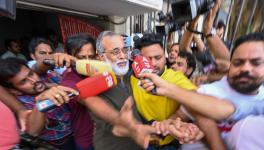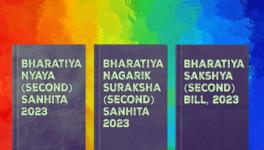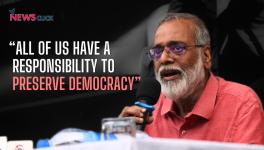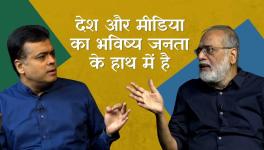The undying flame of Fali S. Nariman
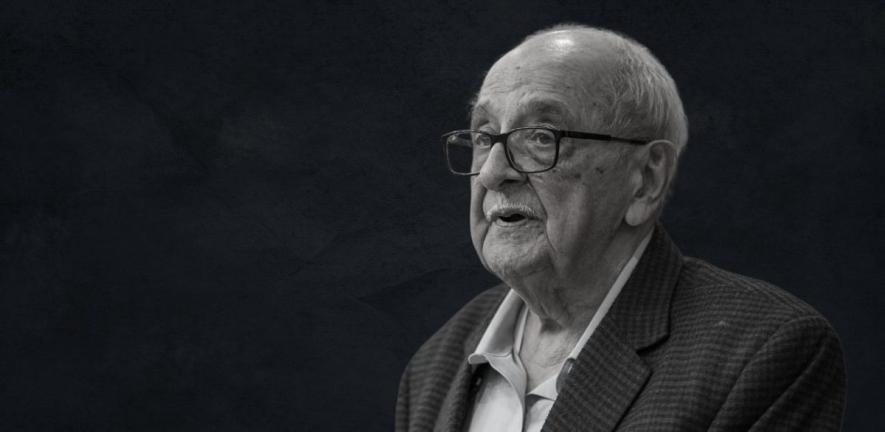
FALI Sam Nariman, like J.V.R. Krishna Iyer, used to say that he is a Nehruvian. The book he strongly recommended was Discovery of India.
Fali played a pivotal role in shaping the Constitution from its nascent stage when it was interpreted by the courts and a vast expansive meaning was attributed to plain words such as liberty and rights.
Having started in the premier High Court of Judicature at Bombay and excelled before legendary Chief Justice M.C. Chagla, Justices such as Gajendra Gadkar and Y.V. Chandrachud and, later on, before the Supreme Court comprising of pathbreaking justices such as Subba Rao, V.R. Krishna Iyer and P.N. Bhagwati, it was no wonder that Fali Nariman was respected by one and all.
Civil liberties, fundamental rights, free speech, press freedom, cultural and educational rights of religious and linguistic minorities and right to property were all dear to his heart.
He shifted to India from Myanmar along with his family even before Independence. Having made India his homeland, as a member of the tiny Parsi community, he contributed everything back to society throughout his life.
Civil liberties, fundamental rights, free speech, press freedom, cultural and educational rights of religious and linguistic minorities and right to property were all dear to his heart.
Some of the pathbreaking matters in which Fali appeared as a lead lawyer include Kesavananda Bharati (fundamental rights case), Golaknath (property rights), Bijoe Emmanuel (religious freedom), T.M.A. Pai (educational rights case of religious minorities), Indian Express (freedom of the press) and four landmark cases on the appointment of high court and Supreme Court judges case.
Being a foremost lawyer in corporate matters as well, Fali was also the lead counsel representing the Union Carbide Corporation in the Bhopal Gas Tragedy case.
Eminent jurist Prof. Upendra Bakshi criticised Fali for this. Bakshi’s critical letter, and his reply to it, were published by Fali in his autobiography. In a later interview with Karan Thapar, Fali expressed his regret for his decision to appear for the Union Carbide Corporation.
Fali had politely refused to accept the offers to be a judge of the Bombay High Court at the age of 38 and direct elevation to the Supreme Court at the age of 48.
Having given up the chance to retire as Chief Justice of India and later on, an offer to be the Attorney General for India during the Atal Bihari Vajpayee government, he had but accepted, at the insistence of his dear wife Bapsi, to be a nominated member to the Rajya Sabha in the year 1999.
The loss to the judiciary became a gain to the Parliament. Presidents ranging from R. Venkataraman, K.R. Narayanan and Dr A.P.J. Abdul Kalam consulted him on important constitutional issues.
An excellent parliamentarian, Fali was the voice on legal issues in the House. Like Ram Jethmalani, he was a great defender of the Independence of the judiciary, both inside the Parliament and in the court.
In an interview with Karan Thapar, Fali expressed his regret for his decision to appear for the Union Carbide Corporation.
Apart from Prime Minister Vajpayee, deputy Prime Minister L.K. Advani, Lok Sabha speaker Somnath Chatterjee, Dr P.C. Alexander and Dr Karan Singh were some other members of Parliament from different political parties who admired Fali, the jurist.
In one of his speeches to parliamentarians, Fali elaborated on one of his favourite judgments. That was the judgment by J. Chinnappa Reddy in Bijoe Emmanuel.
“Our tradition teaches tolerance; our philosophy preaches tolerance; our Constitution practises tolerance; let us not dilute it,” Fali said, extolling the parliamentarians to make it the policy of the nation.
He often used to emphasise the tolerance and inclusiveness of the Hindu religion. Some verses from the Bhagavad Gita, and pictures with personalities such as Dalai Lama, Mother Teresa, etc., are found in his autobiography.
But later, in 2014, when a majoritarian government came to power with an absolute majority, he did not hide his apprehensions. At the Seventh Annual Lecture of the National Minority Commission in 2014, Fali expressed concerns that Hinduism might be losing its tolerance.
Relying on Nehru’s Discovery of India, he commented that acceptance of all diversity is the sole ideology that could hold India together. According to Fali, “Whatever the source from which a minority derives its existence, religious, ethnic or linguistic, the rest of society has to make a conscious effort in coming to terms with it: but the fact of life is that the larger the majority community with greater political power, the lesser the inclination to make efforts to build bridges.”
An excellent parliamentarian, Fali was the voice on legal issues in the House.
In an interview with veteran journalist Shekhar Gupta, Fali mentioned that it is the Constituent Assembly consisting of 85 percent Hindus, Dr Rajendra Prasad being the most orthodox among them, that gave us this magnificent Constitution.
Fali, however, expressed fears that there are efforts to change the character of the Constitution to make India a Hindu Rashtra. He suggested that members of parliament question the incumbent Prime Minister on that.
“Having lived in a multicultural India that has embraced Judaism, Islam and Christianity with open arms, can I die in such a secular India?” Fali asked at the end of his autobiography Before Memory Fades.
Let us keep that flame of passion for inclusivity lit for all times to come and let those memories not fade, ever!
Get the latest reports & analysis with people's perspective on Protests, movements & deep analytical videos, discussions of the current affairs in your Telegram app. Subscribe to NewsClick's Telegram channel & get Real-Time updates on stories, as they get published on our website.











